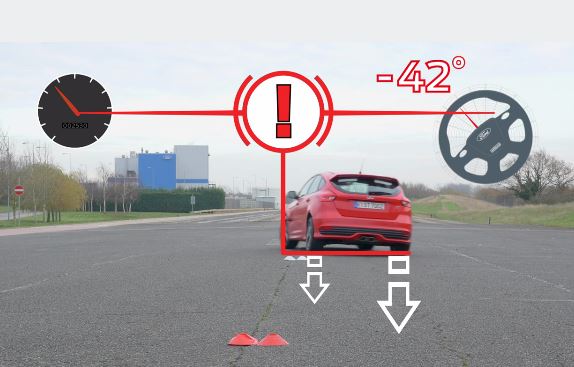 Ford has a new feature that can predict a spin-out before it even begins and puts the brakes on potential disasters.
Ford has a new feature that can predict a spin-out before it even begins and puts the brakes on potential disasters.
The new Ford Focus has enhanced transitional stability technology designed to predict car spin-outs. The feature helps prevent the driver from losing control of the car.
The stability enhancement is so good a passenger holding an egg in a spoon doesn’t get egg on her face or even drop the egg. The car brakes before the driver even realizes she needs to brake.
Enhanced transitional stability technology gives better handling in highly dynamic driving maneuvers. The car’s speed, steering wheel position, turn rate of the steering wheel and other information helps determine when a skid is about to happen. The technology combines real-time data from sensors throughout the car to anticipate a potential spin by 100 to 200 milliseconds. When a risk is sensed, braking is applied to individual wheels to help the driver maintain control and continue on the right direction.
This helps before the driver starts to over-steer making the skid worse.
The feature was created when engineers applied an algorithm already in use with Ford’s Roll Stability Control to the enhanced transitional stability technology. The result is a stability control system that predicts potential spins before they happen.
Engineers have been working to ensure the new Focus feels more connected to the road and is even easier to drive.
Ford cars have other ADAS features such as automated parallel parking, Blind Spot Information System (BLIS) and cross-traffic alert.
Ford also recently announced that the all-new 2015 Ford F-150 is light-duty truck with an available snow plow prep kit for every cab.
Ford opened its Research and Innovation Center Palo Alto in January. Ford’s CEO Mark Fields gave a key note address at CES earlier this year. Ford AppLink won best smartphone integration in the Tech CARS awards.